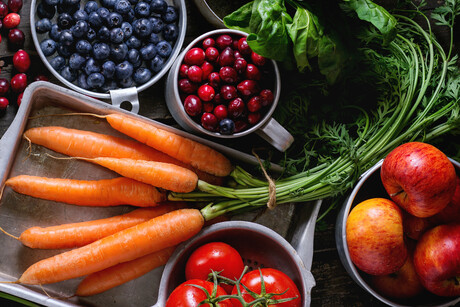Should Eggs Be Part of Your Diet?
Eggs are a traditional part of the diets in most cultures—including the United States. But are they good for us? In a recent study, eating a few eggs per week (two to four) showed no increase in mortality, but eating an egg a day increased the risk of early death—by as much as 23 percent. Diabetics who ate an egg a day doubled their risk of early death. Early results from the new Adventist Health Study show similar results. Vegetarians who eat eggs and milk moderately have no increased risk of mortality when compared to those who eat none (vegans). Diabetics, however, would do well to avoid all eggs for best health. Read more at: www.wellsource.org/handouts/eggs.pdf.
Reduce the Risk of Superbugs
Have you ever taken leftover antibiotics to keep from getting sick? By taking an antibiotic not prescribed by your doctor for your current illness, you could be contributing to the growing problem of antibiotic-resistant bacteria—a problem that health professionals call one of the world's most pressing public health challenges. Sometimes called "superbugs," these infections can't be successfully treated with commonly prescribed antibiotics and often involved long hospital stays or severe side effects from "last-resort" drugs. To reduce the risk: 1) Don't demand an antibiotic. 2) If your doctor does prescribe an antibiotic, take it exactly as directed. 3) Take your entire antibiotic, even if you start feeling better—don't save some for the next time you get sick. 4) Don't take antibiotics prescribed for someone else.
Reduce Your Risk of Cancer
Cancer is a deadly and costly disease. It is the second-leading cause of death in the United States and the No. 1 cause of death for persons younger than 85 years old, which is most of us. But most cancers—at least two-thirds—are preventable. Here are some prevention tips:
1) Don't smoke.
2) Aim for 60 minutes of moderate aerobic activity daily.
3) Achieve and maintain a healthy weight.
4) Eat a mostly plant-based diet—with a wide variety of whole grains, brightly colored fruits, vegetables and nuts.
5) Get regular screenings as recommended by your doctor.
Prepare for an Emergency
You and your family may be without electricity, water or shelter after a natural or man-made catastrophe. It could be a gigantic storm, fire, accident or hostile attack. Prepare for disaster before it strikes. Make an emergency plan and assemble disaster and first aid kits. Read about how to prepare for an emergency: www.wellsource.org/hc/emergency.pdf.
Ask the Doctor
Q: What foods lower blood pressure?
A: Foods high in potassium and low in sodium (salt) are best for lowering blood pressure. Read the entire answer from Don Hall at: www.wellsource.org/ask/bp.pdf.




